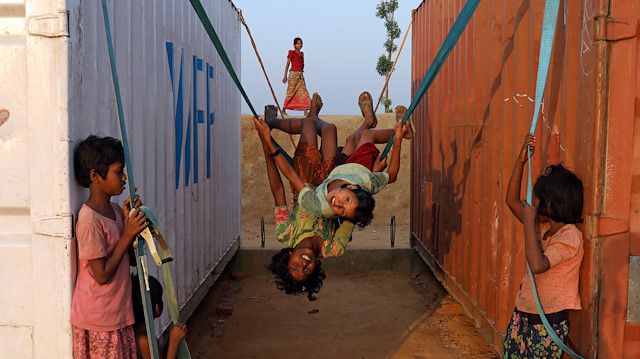
'BACK TO GRADE ONE'
A major obstacle to the return of the Rohingya is Myanmar's requirement that the refugees accept National Verification Cards, a residency document that conveys a status short of citizenship. The Rohingya vehemently oppose the card, known as the NVC. They say the credentials brand them as new arrivals undeserving of citizenship, despite being born in Myanmar.
In the five decades the generals ruled Myanmar, they increasingly tied citizenship to ethnicity and race. Today, Suu Kyi's government adheres to a list of 135 "national races" - a legacy of the junta period - in determining who counts as a citizen. The Rohingya aren't on the list.
Their status has eroded over time. In 2015, the quasi-civilian government then ruling Myanmar stripped the Rohingya of their temporary ID documents, known as "white cards," depriving them of the right to vote in national elections that year. Now, the government is urging the Rohingya to accept the NVC as a "first step" to citizenship.
"How can we accept the NVC?" said Noor Islam, the pharmacist from Taung Bazar.
He has kept his family's old identity documents, including the papers of his father and grandfather, as proof they once shared the same citizenship status as other Burmese. "It's as if the student has passed matriculation and he is then asked to go back to grade one," he said.
More than a dozen recent arrivals at the refugee camps in Cox's Bazar, Bangladesh, said the official pressure to accept the identity cards was why they ultimately fled. They gave accounts of being beaten by soldiers and border police for refusing to accept the cards, and being blocked from traveling for lack of one.
These restrictions and a nightly curfew mean many Rohingya can't reach the fields they till or the markets where they buy food. Four refugees who arrived in Bangladesh in recent months said they had resorted to begging for food before they left. Five Rohingya men said they performed forced labor for the military.
Mohammed Rafiq, 20, who arrived in the camps in September, said he was forced to work at the barracks of Light Infantry Battalion 565 in Buthidaung township. He dug holes, cleaned the compound and cut the grass.
"If anyone slacked in their work, the soldiers would aim their guns and threaten them," he said. "I thought we could survive there, and things would improve. But I couldn't keep doing forced labor. So I came here."
In the camps, many of the Rohingya still dream of going back.
Noor Islam hopes, for his children's sake, that they will ultimately return to their homes in Myanmar. "We want to go back for our children," he said. "Our children have lost their future."














